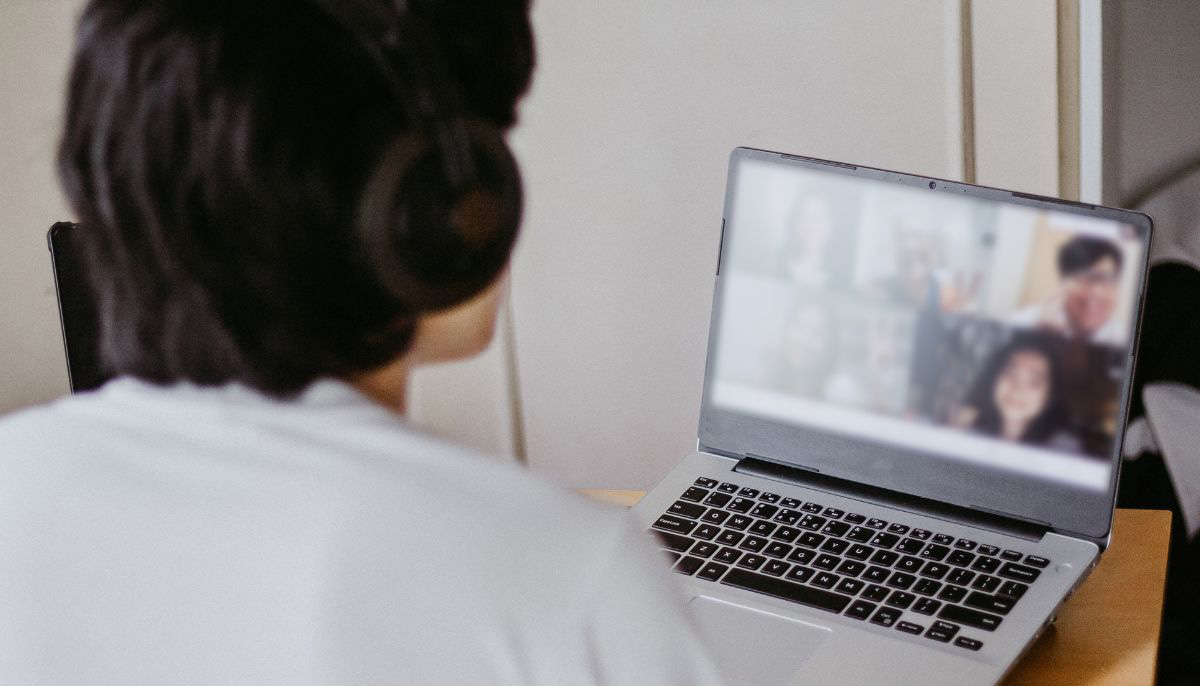A new groundbreaking report on Asian American Buddhists practicing in non-Asian dominant spaces, “Reimagining Diaspora Dharma: Asian American Buddhists Shaping Identities and Creating Communities,” details the findings of a Kataly Foundation-funded study conducted by the Asian American Buddhist Working Group (AABWG), composed of Nalika Gajaweera, Dorothy Imagire, Louije Kim, and Indigo Som.
The report reveals that Asian American Buddhists gravitate towards politically-minded practice communities, as well as the need for broader Asian American Buddhist community-building. While searching for practice spaces, Asian American Buddhists are drawn to and remain in sanghas that encourage “discussion around identity, history, difference, rights, freedom, power, and solidarity.”
Over a six month period, the team conducted focus groups with online sanghas. Participants were of Southeast Asian, East Asian, Pacific Island, and South Asian ancestry. While some participants were raised Buddhist, the majority were not, and had first practiced through Western Insight, Zen, Tibetan, and Plum Village traditions.
The working group asked questions such as, “Do you identify as Asian American Buddhist? Why or why not? What does it mean to you to be an Asian American Buddhist?” and “What is it about this sangha, or any other Asian American community spaces, that draws you?”
Key Findings
The study finds that participants have complex feelings about their Asian American identities, view Buddhism as a political practice, and prioritize a sense of collective liberation, “resisting the dominant Western perspective of Buddhism—that is, that Buddhism is an apolitical practice.” Asian American Buddhists seek spaces where they are empowered and can explore Buddhism through a lens that considers issues of systemic power, as well as how colonialism and dominant Western narratives have shaped understandings and representations of Buddhism.
1) Specifically, the report categorizes Asian American Buddhists’ experiencing harm, loneliness, and familiarity in white spaces. While participating in majority white spaces can offer a sense of familiarity, especially if being in Asian spaces make Asian American Buddhists uncomfortable, the report describes “more explicit harms” in white-majority spaces, such as racial microaggressions, violence, and isolation.
Asian American Buddhists also expressed unease at experiencing Buddhism through a white lens, and failures of white teachers and leaders who “were ignorant of the lived realities of [Asian American Buddhists] or were otherwise racially harmful.” Further, diversity efforts in white majority spaces were met with skepticism, “as instances of performative diversity in response to decades of BIPOC activism, and were not indicative of institutional commitment to systemic change.”
2) Asian American Buddhists also struggle with the question of reforming existing spaces from within or starting new spaces. That is, they ask, “Do we seek to diversity and reform predominantly white convert-meditation based sanghas—or reform ‘heritage’ Asian Buddhist spaces—or do we invest energies in starting or contributing to something new that has not existed before?”
Asian American Buddhists found that connecting to their lineages and histories through ritual and practice “enhanced their experience of Buddhism.” Further, they find that authenticity narratives, like ideas on “pure” Buddhist practices and teachings, are shaped by whiteness. Some participants have spoken up about issues of racialization and power in white-majority spaces or have left such sanghas entirely to practice in Asian American Buddhist or BIPOC spaces.
3) BIPOC spaces offer Asian American Buddhists both a sense of refuge as well as ambivalence. These spaces offer safety through solidarity and conversations about racialization and decolonizing Buddhist practice. However, participants sometimes were uncomfortable speaking about their experiences in these spaces due to the Asian Americans’ relationship with other racial and ethnic groups, which can cause tension.
4) Further, South Asian American Buddhists find that South Asian people and histories are underrepresented in Asian American Buddhist spaces. South Asian Americans raised in Indic traditions view Buddhism “through the lens of their religious upbringing in other South Asian traditions such as Hinduism, Jainism, Islam, and Sikhism.” In particular, South Asian Americans of Hindu descent see Hinduism and Buddhism as “cousin religions”.
5) Young Asian American Buddhists are concerned with leaving a legacy for future generations. One focus group of younger millennial and Gen Z Japanese American Buddhists (20-35 years old) from the Buddhist Churches of America were concerned with supporting and preserving a Buddhist practice rooted in “day-to-day Dharmic engagement as a community,” as opposed to an individual meditation practice.
These young Asian American Buddhists take “an active, central role in their churches to ensure that their concerns were not being ignored or erased.” Their “legacy work” involves raising questions of privilege and power, as well as “[revitalizing] their own Asian dominant religious institutions as places for support and solidarity for other Asian and non-Asian Buddhist members.”
6) Asian American Buddhists prioritize finding safe spaces in POC sanghas with teachers of color. Recent events, such as the COVID-19 pandemic, the Black Lives Matter movement (especially in response to the 2020 police murder of George Floyd), rising anti-Asian violence (such as the 2021 Atlanta shooting), the release of Chenxing Han’s Be the Refuge, and the passing of Thich Nhat Hahn, have driven Asian American Buddhists’ search and/or formation of safe sanghas.
Since these events generated conversation around “living as racialized beings in the U.S.”, participants saw benefits to being in community with other Asian American Buddhists, such as feeling a sense of “’safety’, ‘connection,’ and ‘groundedness.’” Further, participants felt that Asian American Buddhist spaces allowed for vulnerability, community support, a chance to speak and be heard, and “a shared, enriched understanding of the Dharma that was flavored by intimacy with one’s home culture and language.”
Strategies for Asian American Buddhist Community Building
In light of these findings, the Asian American Buddhist Working Group offered suggestions for projects that can support the formation of communities for Asian American Buddhists that want a “third option” outside of non-Asian spaces or “traditional/ethnic/heritage” Asian spaces.
The working group envisions a community-building project that strives to “create a new Asian American Buddhism where everyone shares a body of knowledge about our various lineages and histories and there is a wider, networked sangha that enables people to share resources.”
The report suggests a one or two year program, consisting of weekly small practice groups or “pods” of 8-12 people within a larger Asian American Buddhist cohort, as well as monthly cohort retreats and discussions. Other aspects of the project would include a speaker series, retreats, the inclusion of movement-based practice, as well as a digital space allowing all cohort members to communicate with one another.
This project would be a safe space for Asian American Buddhists to build a sangha that explores and includes different lineages, learns ritual in intersectional and accessible ways, and commits to “[reclaiming] practice lineages that have been shaped by whiteness [and] the priorities of white leaders and communities.”
Other suggestions for projects include a speaker series on topics relevant to Asian American Buddhists by community leaders, practitioners, and scholars; an oral history podcast on Asian American Buddhist experiences; and/or a retreat, conference, or program partnership with a Asian American heritage Buddhist community.
Ultimately, the report hopes such projects will “seek to decolonize American Buddhism and transform American conceptions of Buddhism so that Asian American experiences are given expression.”

